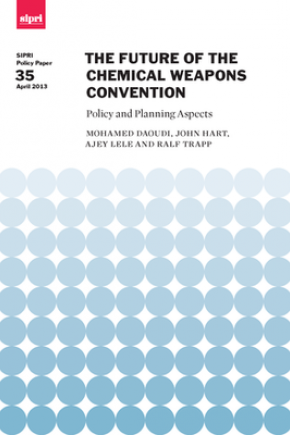The Future of the Chemical Weapons Convention: Policy and Planning Aspects
Chemical weapon disarmament remains central to the implementation of the 1993 Chemical Weapons Convention (CWC). But full and effective implementation also entails a wide variety of other activities. To achieve all these goals, in the coming months and years the states parties to the CWC will determine how the regime will adapt to the changing international security environment and to developments in science and technology.
This report presents proposals for strategic approaches and directions for the parties to consider in their assessment of the CWC’s operation. By placing the convention in a broader security and technological context, it examines operational and policy issues, with a view to informing the future activities of the Organisation for the Prohibition of Chemical Weapons (OPCW). The report will be of lasting interest and relevance to those interested in functional aspects of implementing the CWC regime and maintaining its future relevance.
About the authors
Dr Mohamed Daoudi (Algeria) is an engineer specializing in chemical industry issues, including its petrochemical sector. He was previously a Senior Industry Planning and Verification Officer with the OPCW.
John Hart (United States) heads the SIPRI Chemical and Biological Security Project and is a doctoral candidate in military sciences at the Finnish National Defence University.
Dr Ajey Lele (India) is a Research Fellow specializing in WMD with the Institute for Defence Studies and Analyses (IDSA), New Delhi. He holds the rank of Wing Commander in the Indian Air Force.
Dr Ralf Trapp (Germany) is an independent consultant on chemical and biological weapon arms control. He is a former OPCW senior official. In 2011 he was a member of the Advisory Panel on Future Priorities of the OPCW.
1. Introduction
2. The changing international context and the Third CWC Review Conference
3. The impact of advances in science and technology
4. Preparedness and response
5. Conclusions


